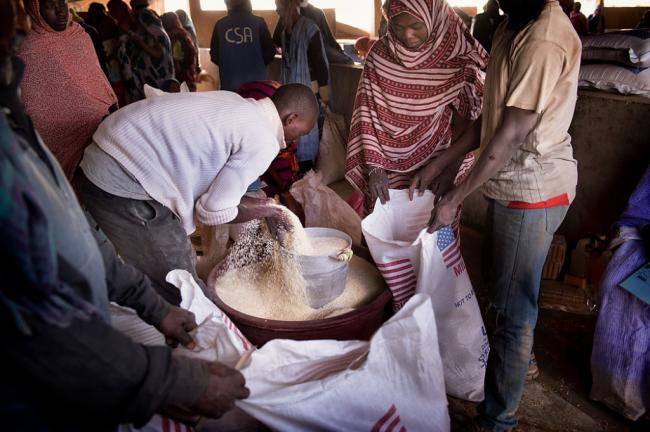
UN presses donors to continue vital support for Malian refugees in Mauritania
In a joint press release, the Office of the UN High Commissioner for Refugees (UNHCR), the World Food Programme (WFP) and the UN Children's Fund (UNICEF), warned that current funding will barely cover the needs until the end of April.
“The overall humanitarian situation in the Mberra camp has gradually improved since 2012, especially in terms of access to clean water, health care and community services for all refugees. These achievements are the result of joint efforts and must be maintained,” said UNHCR Representative in Mauritania, Mohamed Alwash.
“Funding at this stage of the operation is crucial to sustain the progress made,” he underscored.
Since 2012, the agencies have been working very closely with the Mauritanian Government and non-governmental organizations to help Malian refugees who fled the conflict in northern Mali and depend on outside help to meet their needs.
UNHCR provides protection to refugees and access to primary education, health, housing, water, sanitation and hygiene as well as managing the camp and distributions of food and basic iteIt also supports the self-reliance of refugees, especially through adult literacy classes, vocational training, and support to livelihoods and income-generating activities to reduce dependence on external assistance and to provide tailor-made assistance for the most vulnerable.
For its part, WFP is providing food and nutrition assistance to Malian refugees Mberra camp. It provides food each month to all refugees and distributes nutritional supplements enriched with vitamins and trace elements for children under five, and pregnant and lactating women to treat and prevent malnutrition. WFP also provides a daily hot meal for camp primary school children.
“Refugees in the camp have lost almost everything, and for many of them, food and nutrition assistance provided by WFP is a lifeline,” said the Director of the WFP office in Mauritania, Janne Suvanto. “We have seen the negative impact that the successive cuts in food rations in 2015 have had on the health of refugees, increasing the number of children and pregnant women falling into malnutrition. We know that the slightest change in food assistance could have dramatic consequences,” she added.
In Mberra camp, which hosts some 36,000 children, UNICEF continues to strengthen access to quality basic social services in terms of nutrition, health and education. Thanks to UNICEF and its partners, children have access to formal and non-formal education.
Photo: WFP/Agron Dragaj
Support Our Journalism
We cannot do without you.. your contribution supports unbiased journalism
IBNS is not driven by any ism- not wokeism, not racism, not skewed secularism, not hyper right-wing or left liberal ideals, nor by any hardline religious beliefs or hyper nationalism. We want to serve you good old objective news, as they are. We do not judge or preach. We let people decide for themselves. We only try to present factual and well-sourced news.







